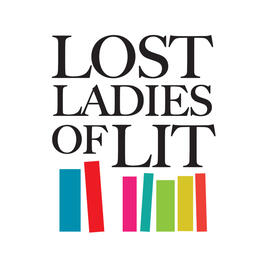
Lost Ladies of Lit
A book podcast hosted by writing partners Amy Helmes and Kim Askew. Guests include biographers, journalists, authors, and cultural historians discussing lost classics by women writers. You can support Lost Ladies of Lit by visiting https://www.patreon.com/c/LostLadiesofLit339.
Show episodes
Send us a text Dark and disturbing, yet strangely redemptive, Djuna Barnes’s 1936 modernist masterpiece Nightwood left even its greatest champion, T.S. Eliot, a bit bewildered. Guest Margaret Vandenburg, an expert in modernism, post-modernism and gender studies, joins us to illuminate Barnes’s tumultuous life and help
Send us a text Likened to a fresh Yorkshire breeze, Malachi Whitaker’s year-in-the-life memoir And So Did I, published in 1939, is a quirky spirit-quest juxtaposing wry humor and contemplative observations amidst the impending threat of global conflict. Valerie Waterhouse, a PhD researcher and executor of Whitaker’s li
Send us a text In this special episode, Kim and Amy recount their recent visit to The Sitting Room, a unique library and literary salon in Sonoma, CA, dedicated to women"s literature. Trip highlights included a stay at a Julia-Morgan-designed architectural gem in Berkeley, a private tour of Jack London State Park, and
Send us a text Republished this year by Valancourt books, Rosalind’s Ashe’s 1976 gothic thriller Moths is a spine-chilling tale of supernatural seduction featuring a femme fatale who lures men to their deaths like lepidoptera to a flame. Gothic lit expert Lisa B. Kröger joins us to discuss Ashe’s knack for channeling f
Send us a text Often called “the lesbian Bible,” Radclyffe Hall’s 1928 novel The Well of Loneliness has been sparking debate for nearly a century. Banned in the UK after an infamous obscenity trial, the book remains a lightening rod for readers — some revere it, others can’t stand it. We’ll explore what makes this grou
Send us a text In this follow-up to our 2021 episode on Nancy Mitford, we’re turning the spotlight on her younger sister, Jessica (a.k.a. “Decca”) Mitford, an activist and journalist whom Time magazine called “the queen of the muckrakers.” Her influential 1963 nonfiction title The American Way of Death exposed corrupti



